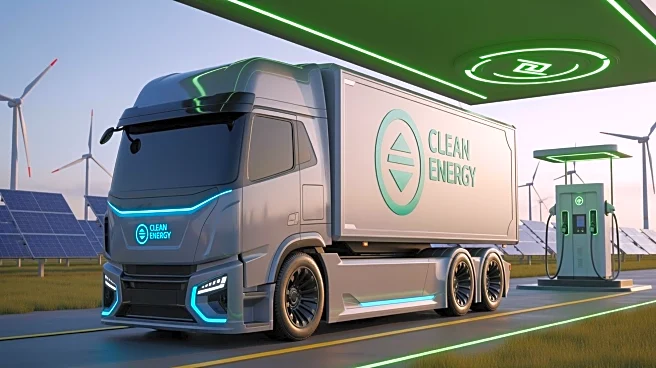What's Happening?
Clean Energy Fuels has signed agreements with various U.S. fleets to expand the use of renewable natural gas (RNG) and liquefied natural gas (LNG) for commercial operations. These deals include RNG supply,
operations, maintenance, and fueling infrastructure construction. Bendix Commercial Vehicle Systems has expanded its solar capacity in Indiana, powering nearly half of its distribution center operations. Workhorse Group has added the Utilimaster Aeromaster body to its electric W56 step van, offering fleets a familiar design with zero emissions. These initiatives reflect a growing trend towards sustainability in the trucking industry.
Why It's Important?
The shift towards renewable energy sources in the trucking industry is crucial for reducing greenhouse gas emissions and achieving sustainability goals. RNG and LNG offer economical and scalable solutions for fleets looking to decarbonize operations. The expansion of solar energy and electric vehicle options supports the industry's commitment to environmental responsibility. These efforts can lead to cost savings, improved public perception, and compliance with regulatory standards. As more companies adopt clean energy solutions, the trucking industry may see increased innovation and investment in sustainable technologies.
What's Next?
The trucking industry is expected to continue investing in renewable energy infrastructure and expanding electric vehicle offerings. Companies may seek partnerships with clean energy providers to enhance sustainability efforts. Regulatory incentives and government support could further accelerate the adoption of green technologies. The industry might also focus on developing new technologies to improve energy efficiency and reduce operational costs.
Beyond the Headlines
The move towards sustainability in trucking raises questions about the long-term impact on employment and the need for workforce training in new technologies. There may be cultural shifts within the industry as companies prioritize environmental responsibility. The initiatives could also influence consumer behavior, with increased demand for eco-friendly transportation options.









